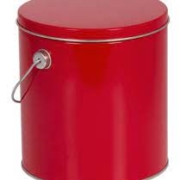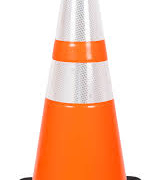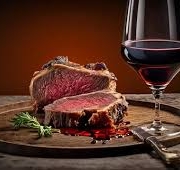A New Home for Tad
“I’m fine! I love it here.”
Lena took the phone out to the porch. The porch and its shed roof are as wide as the cabin itself. She never tires of the scene it frames: a life-size Viewmaster reel of the Wallowa mountains looming up on the far end of the meadow. The vast diorama draws her to the porch’s rough planks at all hours, even in the middle of warm nights, naked, leaning against the railing and looking up into a sheet pan of stars. This morning, while her friend Tammy tries to talk her into coming back to Portland, she listens with her other ear to the Western Meadow Larks and watches a screed of slate clouds slide in from the west.
Tammy sighs loudly.
“We miss you here. Callie misses you. The Oregon Book Awards are in two weeks. You know you love that event. I just can’t imagine what you are doing out there.”
“Writing, all day, every day.” Lena explains.
It is late October, and Lena has been at the cabin, some twenty miles east of Lostine, since she and Tad arrived for their annual visit in August. With one notable exception. Her brief absence was when she’d gone back to Portland for Tad’s funeral. They went to sleep one starry night and only one of them woke up. For Lena, falling asleep with her best friend, her contrarian debate partner, her comedian, her lover, and waking up next to a cold, chalky slab was the most confounding experience in her 60 years. How could this happen to normal people? Where was the alarm bell, the five minute warning? The last call?
An hour after she woke up and he didn’t, the county medical examiner rolled down the long gravel drive with his red light slowly revolving on the top of the van, as if the elk and deer were blocking the intersections. Tad was shuffled off, and Lena sat on the porch and made phone calls. The hardest one first, to their daughter Callie. Five days later, Tad was returned to the cabin in an urn that looked like an old-school biscuit tin. Like a gag in a magic show. Pull off the top, and a coiled snake would pop out. Surprise!
Lena set the tin in the center of the round oak dining table, locked the cabin door, and drove six hours to Portland for the funeral, a turgid affair in which friends with eyes like October day lilies whispered that Tad went just like they would want to: peacefully, in their sleep. Their cliched comments did nothing to extricate Lena from the empty space inside her head. Against Callie’s wishes, she left the next morning to return to the cabin.
“I need to go. Your Dad is there.”
“But Mom! He’s gone! He’s not …”
“I’m not batty, Callie. His ashes are there. I have to decide what to do with them.” She wondered if she’d fooled Callie. It wasn’t just a grave digger’s errand she was on. Tad was there, and she couldn’t bear to be far from him.
She got in about sunset, took an elk steak from the freezer and thawed it in the microwave. By the time it was ready for a hot cast iron pan, she had a salad ready and a bottle of Petite Syrah open. She looked at the dining table with her hostess eye, and shoved the tin urn to the side of the table where Tad always sat. After her father died, she remembered her mother absentmindedly setting a place for him at the dinner table. Lena put a fork and napkin on the left side of the urn, and a knife and spoon on the right, a wine glass at 3 o’clock, as if Tad were the main course.
“A little gritty, but high in protein. Builds strong bodies twelve ways,” she said, raising her glass in Tad’s general direction.
And now, two months later, Tammy was trying to get her to reserve course, leave Tad and the cabin and for god’s sake, come home.
“I mean, seriously Lena, what do you think is going to happen out there in cowboy land? Do you think Prince Charming is going to ride up to that drafty old cabin on a white horse and carry you off?”
The next morning, a man on a white horse road up to the cabin. Lena stood on the porch waiting for him.
“Are you Prince Charming?” she asked.
“Pardon me, Ma’am?”
“Never mind. What can I do for you?”
“I’m here to read the meter. And you are … Mr. and Mrs. Campbell?”
“Not exactly. As they might have called me long ago, Widow Campbell. It’s just me.”
“I’m sorry, my records are not very up to date.”
“It’s recent. I didn’t catch your name?”
“Virgil Broom, Ma’am, with the electric co-op,” he said, tipping his hat.
“You can stop Ma’aming me. Lena is fine. I’ve never met a meter reader on a horse before, Mr. Broom.”
The white dappled mare tossed her head and shifted from side to side, eating the cool, tender grass under the edge of the front porch where Lena spilled the dish water each evening.
“I retired as a lineman five years ago, and just to keep busy, I said I’d check the meters on these outlying farms and such, but only if they’d let me ride Charity.
“So, you were a lineman for the county. And now you you ride the main road?”
Virgil laughed.
“My life as a song.”
“Well, Mr. Broom, would you care for a cup of coffee? I’m about to have my second … French press, if you like that sort of thing.”
They sat on the porch with their cups, and Lena told him about Tad, about her empty house in an old Portland neighborhood, her novels and short stories, her exasperated daughter Callie and Callie’s button-down husband, Tom. And the urn on the dining table.
“Are you married, Virgil?”
“Was. Same as you, widowed.”
“I hope she didn’t die in her sleep.”
“No, cancer, but I think that would have been preferable to watching her waste away.”
“At least you got to say goodbye.”
“I said goodbye a thousand times, and it made no difference.”
They sat quietly a while, measuring their losses.
“Why are you still here?” he asked.
Lena motioned toward the urn.
“Tad. Not sure what to do with him. I keep thinking I’d like to take him high up in the Wallowas. But I don’t want to be that crazy old lady they find up there in a snow drift, frozen to death, clutching a Cliffbar wrapper.”
The next morning, Virgil returned, driving a rusted GMC pickup pulling a horse trailer loaded with Charity, and a roan gelding named Watcher.
“Do you ride?”
“I guess I better, since you drove all the way out here.”
Lena packed a lunch of beef tongue sandwiches, apples and peanut butter cookies. She put the lunch in one saddle bag, and Tad in the other. Watcher was Lena’s kind of horse, quiet and sure. They followed a creek up, higher and higher, on deer trails. Lena kept looking left, right, thinking the perfect spot for Tad would present itself, like a nice house in the suburbs with a two car garage and plenty of room to roam.
They stopped for lunch on a high rock outcropping, looking back toward Idaho and the Snake River Canyon. She asked Virgil what he did with himself.
“I paint.”
“Really.”
“Linemen are people too, Lena.”
She flushed. “I guess that did sound a little like …”
“Big city snobbery?”
“Yes. What do you paint?”
“Oh nothing you’d ever recognize.”
“Ah, the best kind. You paint your imagination.”
“’Spect so. You want to go higher?” Virgil asked.
“Maybe, just a bit farther.”
At one o’clock, Virgil sat back in his saddle, and turned toward Lena on the trail.
“We’re going to have to head back. It’ll be dark by four o’clock.” There was no judgment in his voice, just a question.
“I guess Tad doesn’t want to stay up here after all,” Lena said. “I’m sorry, Virgil.”
“There’s never a reason to be sorry about a good ride,” Virgil said, urging Charity back into the lead down the mountain.
Two days before Thanksgiving, Lena arranged some fallen autumn leaves on the top of Tad’s urn, which she had returned to its spot on the dining table after the trail ride. In early December, she cut down a small pine and stood it in a bucket near the big window, draping it in strings of popcorn and lights from the hardware store in Lostine. She put Tad under the tree.
Callie called.
“Mom, won’t you please come home for Christmas?”
“I just can’t, Callie,” she said, looking out at the bare, frozen meadow. “There’s two feet of snow on the ground. I’d never make it, even in the Subaru.”
Five days later, there were two feet of snow on the ground, and more falling. Lena stoked the stove with wood Virgil had chopped, and that she had stacked on the lee side of the cabin.
“If you insist on staying up here for the winter, you don’t want to be that crazy old lady they find frozen in her bed in March,” he said.
Lena wrote away the short days, and read in the evening. She pulled on her boots and tromped through the meadow on sunny mornings, breaking the stillness.
On Christmas Eve, she heard the low grind of Virgil’s old pickup as it snow-plowed the driveway.
“I come bearing chocolate and whiskey,” he said at the cabin door.
They sat by the fire.
“How is your writing going?”
“Good. Better, actually. Tad is an inspiration,” she said, nodding to the urn under the tree. “And your painting?”
“Good. You are an inspiration.”
“Are you suggesting it’s better to be inspired by a live woman in a cabin than a dead guy in a cookie tin?”
“I’m suggesting no such thing, but you seem to have” he said, sipping his whiskey. “The day we met, when I came to read the meter, what did you mean about Prince Charming?”
Lena retold the conversation with Tammy. “And then you road in the very next day, you see. When Callie was little, she would have called that a ‘co-inka-dink.’”
“I’m no prince, maybe a low-level emissary, the king’s horseman. As for charm …”
“You do have that in spades, Mr. Broom.”
February brought a false spring, and all the snow melted around the cabin, exposing the dregs of Lena’s herb garden. She paced the open quarter on the sunny side of the cabin, where grass encroached on the rosemary, thyme and marjoram. She put on her gum boots and took a shovel to it, paring the grass back five feet on all sides.
Virgil showed up that evening with a steelhead filet from his freezer and two russet potatoes. He built a fire in a ring of rocks and set a grate on top. He wrapped the potatoes in foil and rested them in the embers, then nestled the fillet into a foil boat on the grate, crumbling some of the wintered-over marjoram on top. They ate dinner on the porch, wrapped in warm coats, away from Tad, who had returned to the dining room table after his turn as a Christmas present under the tree.
“I see you’ve spaded out that garden. Be a while before you can plant. More snow coming, you know. It’s not frost-free up here until late June.”
“I figured. But tomatoes are calling to me. Maybe some peas and, and in the fall, chicory.”
“The farmer city woman writer, a Renaissance woman,” Virgil teased her.
“My true birthright,” Lena said.
The moon was full that night, and Lena stood on the porch in the moonlight in Tad’s favorite silk nightgown and her gum boots. The night was cold, thirty-five degrees, and she clutched the urn to her chest as if it might warm her. She made her way to the newly turned garden and dropped to her knees on the sodden ground, and slowly pulled the lid from the tin. With her bare hands, she lifted the ashes in small fist fulls, and spread them over the bare earth.
“It’s something you can do, Tad, fertilize our tomatoes. Bring a little zip to our peppers.” Tiny wisps of gray ash fluffed through her fingers. “You died in the middle of a night like this, but tomorrow, the sun will come up, and you can get to work. I’m going back to Portland tomorrow, just for a while, to see Callie, maybe let Tammy torment me a little.” She sprinkled some more. “But I’ll be back … home … here … in time to plant. I’ll bring those tomato starts from that nursery on Stark St.” She turned the can over and let the last of the ashes drift away. “And I do sort of like that lineman.”
The next morning, she found a piece of cardboard and nailed it to the cabin door. In red Sharpie she wrote, “Prince Charming: I’ll be back in May.” The cardboard road out the rest of winter, swinging from side to side, and never faded.



